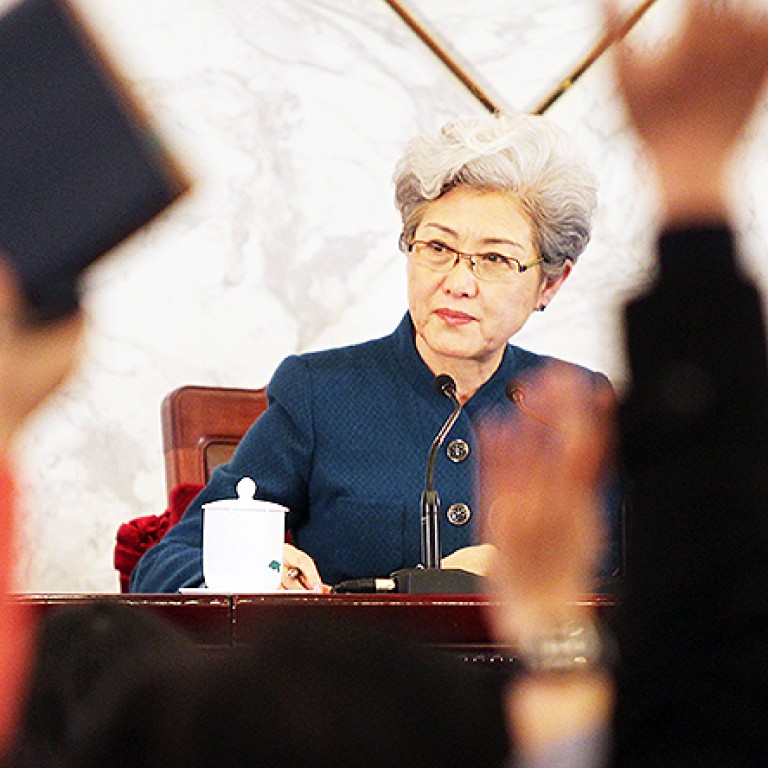
New | China’s NPC urges ‘smooth implementation’ of universal suffrage in Hong Kong
But fears are expressed that pan-democrats could derail discussions by insisting on public nomination
China’s top legislature would like to see Hongkongers choose their leader by direct elections in 2017, according to a spokeswoman for the National People’s Congress.
“It is the hope of Hong Kong’s people, as well as the long-standing stance of the central government, that the chief executive [of Hong Kong] can be returned by universal suffrage in 2017 in accordance with the law,” said Fu Ying, spokeswoman for the second session of China’s 12th National People’s Congress.
“Implementing universal suffrage is a big issue for Hong Kong. It is also about the future stability and development of Hong Kong,” Fu told a press conference today.
“We believe [the Hong Kong government] can deal with all aspects of the issue in accordance with the law. We also hope various sectors of the Hong Kong community can work hard together to achieve universal suffrage in accordance with the Basic Law and the rulings of the National People’s Congress.
“From the viewpoint of National People’s Congress, we would like to see that universal suffrage [in Hong Kong] can be smoothly implemented.”
From the viewpoint of National People’s Congress, we would like to see that universal suffrage [in Hong Kong] can be smoothly implemented
The Hong Kong government is seeking the public’s views on the electoral arrangements for the chief executive elections in 2017 and the formation of the Legislative Council in 2016. Its consultation ends on May 3.
For the chief executive election, the opposition pan-democrats have called for a “three-track system” in which a candidate can be chosen by public nomination or through support from political parties, in addition to a nominating committee as stated in the Basic Law.
But officials have repeatedly said such arrangements were not in line with the Basic Law.
Rita Fan Hsu Lai-tai, a member of the National People’s Congress standing committee, who is in Beijing, urged pan-democrats to stop advocating public nomination.
She said insisting on this was unlikely to achieve consensus and could result in Hong Kong missing its opportunity for universal suffrage in 2017.
We should stop insisting on civil nomination and discuss, say, the composition of the nominating committee,” said Fan. “These are much needed contents in the future political reform package.”
Another Hong Kong delegate to the National People’s Congress, Cheng Yiu-tong, said further talks on civil nomination would be only a waste of time.
But in Hong Kong, former chief secretary Anson Chan Fang On-sang argued the Hong Kong government should not rule out civil nomination at this early stage.
Meanwhile, Secretary for Constitutional and Mainland Affairs Raymond Tam Chi-yuen attended a Tuen Mun district council session to listen to views about the political reforms.
He called for “calm discussion”, saying there was still a long time before the reform package would be tabled to the Legislative Council for a vote.

